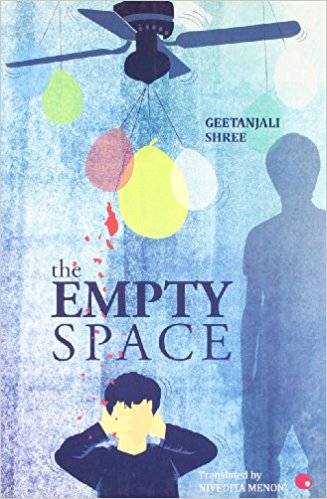‘But the burden of every death can be assumed symbolically by a culture and a social memory (that is even their essential function and their justification, their raison d´être). Culture and memory limit the ‘reality’ of individual death to this extent, they soften or deaden it in the realm of the symbolic.’ ‘No Apocalypse, Not Now (Full Speed Ahead, Seven Missiles, Seven Missives)’ Jaques Derrida
The question of negotiation between individual and cultural trauma is a difficult one. While history has given us numerous examples of national forgetting or dissociation in the collective memory, post traumatic stress syndrome remains a reality in the psyche of individuals who have experienced and survived the moment of terror and injury.
Geetanjali Shree’s The Empty Space is just such a narrative of the plight of a young individual where social contexts influence, burden and make the processes of self perception and self recovery even more difficult for the traumatized. The fiction is an attempt to understand and represent ways in which social violence continues to pursue the victims long after the moment of catastrophe. Violence here continues to shape the inner psyche and interpersonal relationships within a social sphere, and even within a unit as small as the nuclear family, through ways in which the post traumatized individuals make sense of their lives, unintentionally clashing with one another. Each one’s experience of the incident and how one reacts to the same are unique and therefore there arises a compelling need to narrate and communicate one’s personal experience in one’s own terms. The Empty Space comes from an anonymous narrator whose identity and voice are forever lost and left behind in an empty space created by a bomb blast in a terrorist attack. If memory is structured like a narrative, then is communication possible when there has been a loss of memory and a synthetic, artificial memory is forcefully superimposed on the psyche? An act of sensitive invocation, the novel tries to foster empathy towards a lonesome survivor of a terrorist attack which took away nineteen lives, shorn of the sensationalist elements that usually typify public, media and national narratives which do the run for a few days before being forgotten entirely. Through an extraordinarily evocative narrative, it engages us to delve deep into the most complex psychological issues which face us today: terrorism, trauma and healing.

